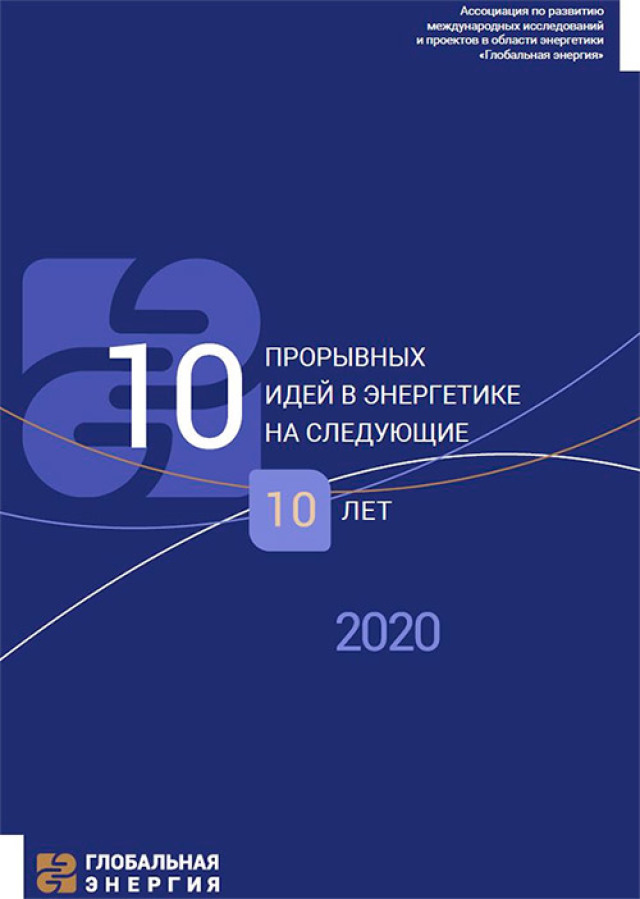the international association "global energy" presented the first annual report "10 breakthrough ideas in energy for the next 10 years", co-authored by scientists from around the world. The report reflects the main provisions of research aimed at combating global climate change, including through the development of energy efficiency and energy conservation, as well as renewable energy technologies.
Global climate change has become a reality, and its pace threatens irreversible consequences for ecosystems. according to the most gloomy forecasts of environmentalists, in just 50 years, up to 3.5 billion people may find themselves in areas unsuitable for life if humanity does not reduce co2 emissions. The total area of the Earth, where the average annual temperature exceeds 29 degrees Celsius (and this is the temperature regime of the Sahara Desert), can increase from 0.8% to 19% of the land.
According to him, the ideas presented in the report can radically change the structure of global energy consumption. Technologies based on these ideas provide for the growth of energy efficiency and energy saving, reduction of greenhouse gas emissions, as well as the development of renewable energy sources.
The report covers a wide range of topics and areas, including:
carbon capture and storage)
Technologies that separate CO2 emissions from industrial and energy sources and ensure their long-term isolation from the atmosphere.
smart networks (smart grid)
Digital transformation technologies that allow the use of big data arrays on energy production and energy consumption to improve the efficiency and reliability of electricity production and distribution.
hydrogen energy (hydrogen economy)
Technologies for the use of hydrogen as a fuel for electricity generation, for vehicles (including technologies for industrial storage and long-distance transportation).
Small modular reactors (small modular reactors)
Developments in the nuclear power industry that allow the production of small and medium-sized reactors (up to 300 MW), including for the replacement of organic fuel power plants.
Conversion of electricity to gas (power-to-gas, P2G)
Technologies that allow the use of excess electricity for the production of methane or liquefied gas. P2G is a promising technology for seasonal energy storage, as the resulting gas can be easily converted back into electricity using conventional gas turbines.
Compact and efficient energy storage devices (supercapacitors)
Development of devices capable of accumulating electricity on an industrial scale.
Recycling and conversion of waste to energy (waste-to-energy, W2E)
Technologies that allow generating electricity and heat as a result of processing solid household waste that has been pre-sorted. W2E allows you to solve the problem in a complex: on the one hand - to reduce the volume of solid waste disposal in landfills; on the other-to reduce the volume of environmentally harmful coal energy.
Biofuel (biofuel)
Technologies for the production and use of environmentally friendly biofuels of a new generation from plant or animal raw materials, from the waste products of organisms or organic industrial waste.
Artificial photosynthesis (artificial photosynthesis)
Chemical technologies that reproduce the natural process of photosynthesis. Research on this topic includes the design and assembly of devices for the direct production of solar fuel, photoelectrochemistry and its application in fuel cells, and the production of biohydrogen from sunlight.
Among the co - authors of the first report are well-known scientists from Russia, Great Britain, Italy and Iran.
Global energy Association"
A non-governmental organization established in 2002 to support research and innovation in the field of energy, as well as to promote energy cooperation. Are members of the Association of PJSC "Gazprom", JSC "Surgutneftegaz" and "Russian grids FGC UES". The Association helps shape the energy of the future by supporting advanced scientific and technical developments and promoting international energy cooperation in the interests of all mankind. Since 2003, the Association has presented the global energy international energy award annually. Over the past 17 years, 42 scientists from 15 countries have won the award: Australia, Austria, great Britain, Canada, Denmark, France, Greece, Iceland, Italy, Japan, Russia, the United States, Ukraine, Switzerland, Sweden and Japan. Last year, the bonus Fund amounted to 39 million rubles.

Photo provided by the press service of the global energy Association»

